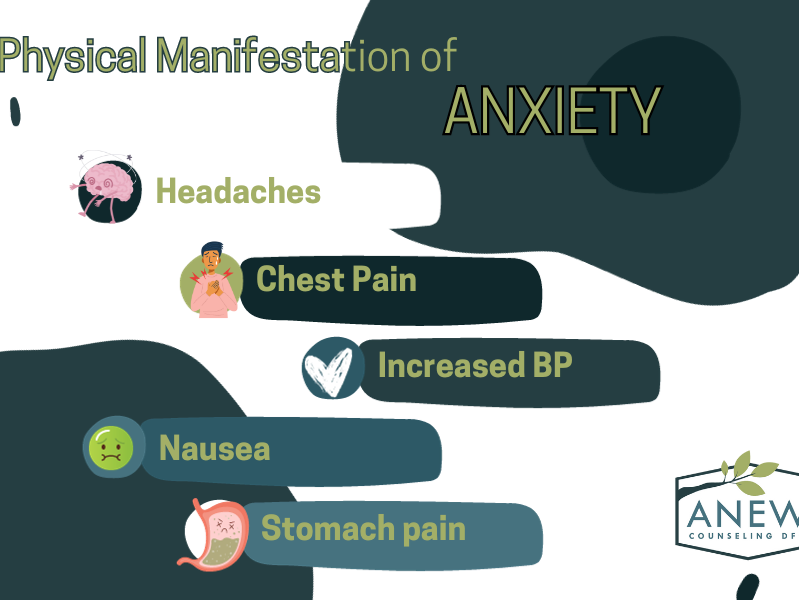Anxiety is a common mental health disorder that affects millions of people worldwide. While we often think of anxiety as an emotional or psychological condition, it can also have significant physical manifestations. In this blog post, we will explore some of the physical symptoms of anxiety, including headaches, chest pain, high blood pressure, and nausea. We will also discuss some coping mechanisms that can help manage these symptoms.
Anxiety Headaches
Anxiety can often lead to tension headaches, which are characterized by a dull, aching sensation all over the head. It is often accompanied by a feeling of pressure or tightness around the forehead, sides, and back of the head, or tenderness on the scalp, neck, and shoulder muscles. It’s important to remember that while these headaches can be uncomfortable, they are not dangerous and can be managed with relaxation techniques, stress management, and medication if necessary.
Anxiety Chest Pain
Chest pain is another common physical symptom of anxiety. This pain can be sharp, intense, and frightening, often leading individuals to believe they are having a heart attack. However, anxiety-related chest pain tends to be localized in the center of the chest, while pain from a heart attack often radiates to other areas like the arm or jaw. Despite this, any chest pain should be evaluated by a healthcare professional to rule out any heart conditions.
Anxiety and Blood Pressure
Anxiety can also have an impact on blood pressure. During periods of anxiety, the body produces a surge of hormones such as adrenaline, which can cause the heart to beat faster and the blood vessels to narrow, leading to a temporary increase in blood pressure. Over time, this can lead to long-term hypertension if not managed effectively. Regular exercise, a healthy diet, and stress management techniques can help manage blood pressure levels.
Anxiety Nausea
Nausea is another physical symptom that can be caused by anxiety. This can feel like a pit in your stomach or a need to vomit, even when you are not ill. This is because the digestive system is often referred to as the “second brain” and is closely linked to emotions and stress. Techniques such as deep breathing, mindfulness, and distraction can help manage this symptom.
Conclusion
Anxiety can manifest in various physical symptoms, but it’s important to remember that these are manageable and not dangerous. At Anew Counseling DFW, our experienced therapists Gary, Victoria, and Chris Goetz are here to help you navigate through these symptoms and provide you with the tools to manage your anxiety effectively. If you’re experiencing any of these symptoms, we encourage you to reach out to us. Start by filling out our intake form, and we’ll schedule a free 15-minute consultation to begin our journey together. 7
Remember, you’re not alone in this journey. We’re here to help.
Footnotes

Recent Comments